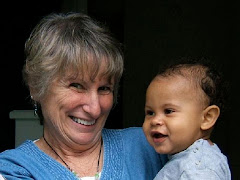Remember the joy of teaching?
(this tip comes from Tom Daly of adhdsolutions.com)
It is impossible to instill a joy of learning in our kids when we
are not feeling joy in our work.
Joy flows downhill. When joy wells up inside us, it impacts our
students! It is contagious!
But, when we are beaten down, and staring at our shoes, our
students are left to emotionally fend for themselves. And, even for
our most resilient kids, being left to emotionally fend for
themselves is a horrible plan that will only make things worse.
Imagine that you are sitting in a big room. Just you. Then, one by
one, every student you have taught or counseled comes in with a
card in their hand. A card they made just for you, straight from
the heart, reminding you of how you changed their lives. Take a
moment to close your eyes and picture those names and faces.
So today, my encouragement is to do these three things:
Focus on those kids.
Focus on those kids.
Focus on those kids.
Forget all the public rhetoric and criticism, and the unfair focus
on test scores as the sole measurement of your worth.
If we focus on how we have impacted our students, it will shield us
from the criticism of what we do each day, and it will keep at bay
all those issues that cloud us from seeing clearly our true
mission: reaching out and saving students around us.
Saturday, January 22, 2011
Wednesday, January 19, 2011
"I wish my sister would go away...forever"
Do you have sibling children who seem to always be in competition for your attention?
Sibling rivalry is very common and so are the many theories of how to handle it. Children who feel love, children who feel seen, children who feel nurtured will allow the same for their sibling. The child who tries to get his /her sibling in trouble, the child who fights to get your attention is the child who NEEDS attention, positive attention. The Beyond Consequences model of parenting has a formula: 10-20-10. Give each child 10 minutes of your undivided attention in the morning, 20 minutes in the afternoon, and 10 minutes in the evening. Do this every day; some days you may only be able to do 5-10-5. The concept is that each of our children need their own time with us. Heather Forbes says that sibling rivalry is an issue between parent and child not child and child.
Sibling rivalry is very common and so are the many theories of how to handle it. Children who feel love, children who feel seen, children who feel nurtured will allow the same for their sibling. The child who tries to get his /her sibling in trouble, the child who fights to get your attention is the child who NEEDS attention, positive attention. The Beyond Consequences model of parenting has a formula: 10-20-10. Give each child 10 minutes of your undivided attention in the morning, 20 minutes in the afternoon, and 10 minutes in the evening. Do this every day; some days you may only be able to do 5-10-5. The concept is that each of our children need their own time with us. Heather Forbes says that sibling rivalry is an issue between parent and child not child and child.
Monday, January 10, 2011
What happened to the honeymoon...
How many foster and adoptive parents have asked this question when their child who seemed to be fitting in so well to the new family, the new school, the new holiday celebrations, the new home suddenly is defiant, aggressive and destructive? What happened to the child who was so excited about having a new family? Bruce Perry, a neurobiologist and child psychiatrist tells us that when a child is under stress short term memory is suppressed and thinking becomes confused and distorted. One of the things that happens to many children in these situations is that they know, because of their history that life will return to chaos and unpredictability. And you may find that your child becomes defiant, aggressive and perhaps a bit scarey in the things he says and does in order to "provoke" what has become to him predictable. It has been said by family therapists that we are more comfortable with the familiar even if that familiar is awful...the certainty of the awful is better than the uncertainty of the unknown. And this is a perfect example of why a child will increase their disruptive behaviors, when the adults shift from a punitive paradigm to one of love and understanding. And truthfully, it causes adults to decide that parenting or teaching from a love-based perspective, trying to understand that all negative behavior arises from a state of stress and that children do not consciously choose to behave badly doesn't work. If only adults will allow a child the discomfort of the unpredictable and understand that a child's acting out is not from a conscious place, a family can move forward.
Subscribe to:
Comments (Atom)


